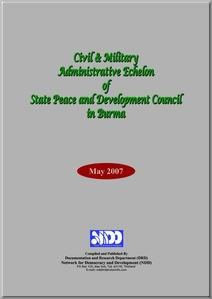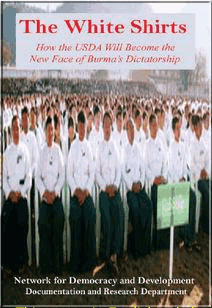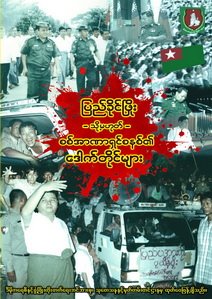By Peter Janssen, dpa
There is one thing Burmese military rulers can expect in the wake of Cyclone Nargis, which killed more than 22,500 people and wrecked the country's rice bowl: Anger, and a lot of it.
Burmese have been suffering under military rule for the past 46 years, watching their once prosperous country fall from its perch in the 1950s as Asia's leading exporter of rice and other commodities to its current status, in United Nations jargon, as "least developed developing nation."
During the decades of the military's economic mismanagement and brutal political suppression, the one thing the generals had in their favour was a mild climate, which along with fertile land provided an assurance that no matter how bad their rule, the people would have enough to eat.
Now that certainty has been shattered by Mother Nature.
Cyclone Nargis, packing 200-kilometre-per-hour winds, hit the central coastal region last Friday, inundating the Irrawaddy Delta with tidal waves and floodwaters and smashing much of the fragile infrastructure of Rangoon, the country's largest city and commercial hub.
The extent of the damage wrought on the Irrawaddy Delta remains unknown, with access still a problem days after the storm.
What is clear is that the cyclone hit after the main paddy crop had been planted, and Burma faces a serious short-term and possible long-term problem in feeding its people.
"This disaster is going to last," said one European diplomat. "It's not something that is going to be over in a couple of weeks or months. It will have far-reaching consequences until the next harvest."
The rich alluvial plains of the Irrawaddy account for at least 60 per cent of the rice crop, the country's staple food.
Nobody yet knows how much rice the government had stockpiled, but it can be assumed that many warehouses were damaged by the storm. This looming food crisis, both for the cyclone's victims (the number of people in need of assistance is estimated at 24 million) and for the country as a whole, has forced the junta into a situation of unprecedented dependence on the international community to bail it out.
To the surprise of some, the ruling junta, which has prided itself in the past on its indifference to international opinion, has had to appeal for disaster relief in order to save its own people and, ironically, to save itself.
"If they don't get enough proper assistance out in the next couple of days or weeks the people will be very angry, and that anger might overcome their fear because they may feel they have nothing to lose," said Win Min, a lecturer on Burmese affairs at Chiang Mai University.
While acknowledging that they need emergency aid from the international community, the military dictatorship appears to be trying its best to claim the credit for the largesse by controlling its distribution to the devastated countryside.
"They are delaying visas for foreign aid workers, which is a clear sign that they want the materials but don't want the foreign workers," said Win Min.
So far, the government has refused to waive visas requirements for teams trying to bring in foreign aid, although this may change as the magnitude of the catastrophe sinks in.
Meanwhile, Western donors are trying to make sure the emergency relief is delivered and a major disaster averted, while at the same time trying to assure that it is not squandered.
"We are ready to provide help without political bargaining but at the same time we have to have a minimal number of people in the country to know what is going on to assess the scene and make sure it is well spent," said a Western diplomat. "At the end of the day it is an issue of access."
Any delays in the delivery of goods is likely to lead to a lot more anger among the people, and that anger may be expressed at the upcoming referendum scheduled for Saturday, a military-managed affair that is intended to endorse a new constitution that will essentially cement their dominant role in all future governments.
Despite the cyclone, the junta plans to go ahead with the May 10 referendum, although it has postponed the vote in 47 of the worst-hit townships until May 24.
"For the time being people are concerned with survival, burials, etc, but even people in areas not affected are angry at the governments lack of warning and slow response, so more will vote "no" on Saturday," predicted Bo Kyi, spokesman for the Assistance Association for Political Prisoners (AAPP), a group based on the Thai-Burmese border.
It is assumed that the military will make sure that the referendum will result in a positive endorsement for the constitution, but any obvious rigging of the vote will likely make the people even more angry, said Bo Kyi.
(Source-http://www.bangkokpost.com/topstories/topstories.php?id=1275380
Thursday, May 8, 2008
ANALYSIS: Burma storm clouds
Subscribe to:
Post Comments (Atom)



















No comments:
Post a Comment